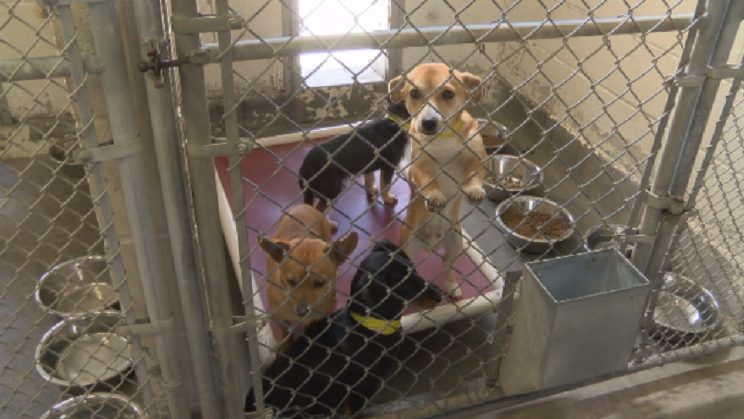
The Hon. Ginger Nelson, Mayor,
And Members of the City Council
Amarillo City Hall
601 S. Buchanan
Amarillo, TX 79101
Dear Mayor and Members of the City Council:
The No Kill Advocacy Center is the nation’s premier national organization working to end the systematic killing of animals in U.S. shelters. We have assisted communities across the nation achieve placement rates greater than 90% and as high as 99%, with hundreds of cities and towns across the U.S. now having done so. Doing so has not only been a win for animals and animal lovers, it’s been a win for taxpayers and local businesses.
Contrary to misstatements made by several council members at a recent candidate’s forum, such as those of Mayor Nelson that, “It’s just not financially feasible” to run a municipal No Kill shelter or those by Councilmember Elaine Hays that, “It’s just not economically feasible for a no kill shelter to be a solution in our community,” the communities that have achieved lifesaving success have not only done so in a cost-effective manner, they have also reaped an economic windfall as a result.
A University of Denver study, for example, found that a No Kill ordinance passed in Austin, which placed 98% for dogs and 96% of cats in 2018, yielded $157,452,503 in positive economic impact to the community in its first six years — a return on investment of over 400%. The study concluded that, “The costs associated with implementing the Resolution appear to have been more than offset by a series of economic benefits to the community.” And study authors further concluded that that’s “the most conservative possible measure of the data.” In other words, the true economic benefit is likely to be higher.
The study also noted that the No Kill initiative brought new businesses like Google to Austin and improved overall civic health and engagement finding that,
An additional benefit appears to be the positive contribution of Austin’s progressive animal welfare policies to its brand equity. This impact is important as municipalities compete with each other to attract employee demographics that in turn draw new business and new economic growth to their area. Although not included in the final economic impact calculation, the potential impacts of progressive animal welfare policies on larger social and environmental outcomes, including public health, social capital, and community engagement, have important implications for Austin’s ability to promote and sustain the health and well-being of both its human and animal residents.
Prior studies have reached similar conclusions. In California, for example, one provision of its Animal Shelter Law resulted in a 370% increase in lifesaving — from 12,526 animals a year before the law went into effect to 58,939. That increase corresponded with a cost savings of $1,856,520 for killing and destruction of remains (these savings do not include additional savings related to cost of care). Similar studies, with similar conclusions, have been conducted in Florida, Michigan, Minnesota, and Oklahoma.
Additionally, communities like Muncie, Indiana, which likewise passed a No Kill ordinance and achieved placement rates of 99% of animals, did not seek increases in budgetary allocations to animal services, as the vast majority of shelter costs are fixed and any increased costs are more than offset by savings associated with declines in killing and additional revenues from increased reclaims and adoptions.
The conclusion is inescapable: No Kill is cost-effective, fiscally responsible, and a great economic boon to local communities. Municipalities which want to enact good policy and improve the local economy should invest in lifesaving at their local shelter. Given the cost savings and additional revenues of doing so (reduced costs associated with killing, an increase in adoption revenues and other user fees, enhanced economic spending in the community, and additional sales tax revenues), Amarillo cannot afford to continue business as usual.
Moreover, given the recent change in leadership at Amarillo Animal Management & Welfare, the City has the opportunity to move in a new direction, which will not only yield these benefits, but will result in broad, bipartisan community support. A recent study found that 96% of Americans — almost every single person surveyed — said we have a moral duty to care for animals and should have strong laws to do so. Not surprisingly, the Delaware law passed unanimously, the Austin law passed unanimously, the Muncie law overwhelmingly passed, and the California legislation passed by a vote of 96 to 12, as close to unanimous as one could get in a state as large and as diverse as California. A No Kill ordinance is not just good ethics, good business, and good economics, it’s good politics.
Links to these studies and additional analyses of costs vs. placement rates can be found online at nokilladvocacycenter.org/costs.html. A link to the model ordinance which will yield these benefits to animals, residents, taxpayers, and local businesses can be found at nokilladvocacycenter.org/companion-animal-protection-act.html. A link to communities with placement rates between 90% and 100% can be found at saving90.org. If we can assist in any way, please do not hesitate to contact us.
Very truly yours,
Nathan Winograd
No Kill Advocacy Center
————-
Have a comment? Join the discussion by clicking here.